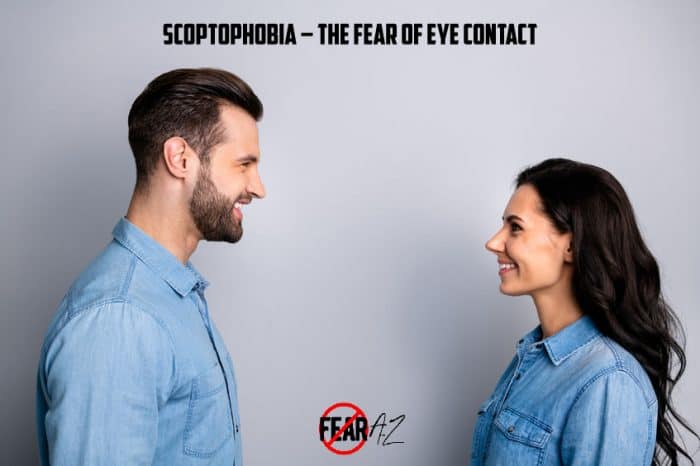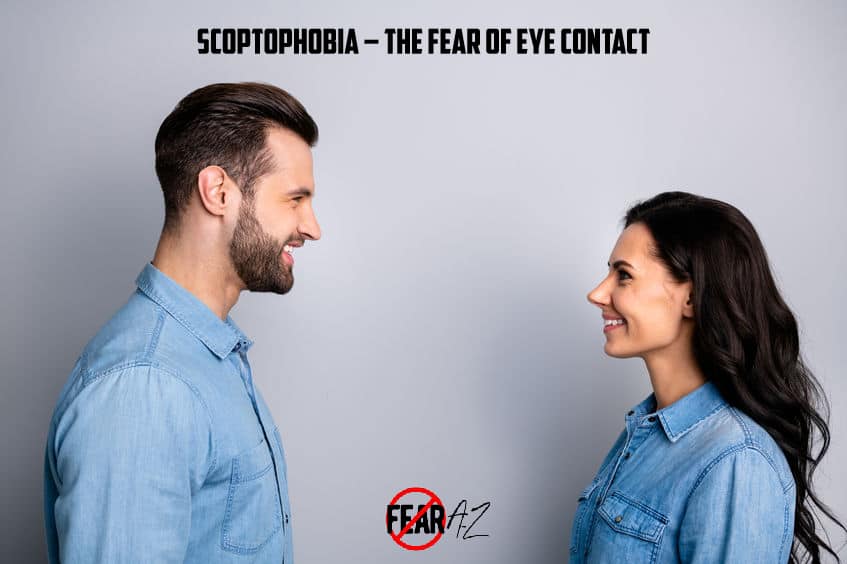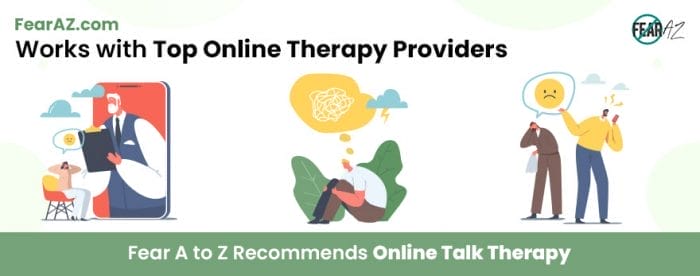Share This Article
Don’t Look Away from Scoptophobia
Are you afraid of people? Many of you might respond with an emphatic No!
Let’s phrase that another way: Do you fear making eye contact? If yes, then read on.
Perhaps you’ve felt nervous at the sight of another human passing you on the street, or kept your eyes on the ground while at the check-out counter of a grocery store. Do you struggle to make eye contact while in a group of friends? Do you feel tongue-tied and experience a dry mouth at the thought of another person looking at you?
Well, these are all tell-tale signs of the very common fear of eye contact, or scoptophobia, as psychologists call it.
While this fear may sound silly, it can make you feel sad and fearful. For people who suffer from scoptophobia, the fear of making eye contact is a very real, everyday reality.
Yet, every problem has a solution, and this too has one—in fact, many. You can find the solutions to scoptophobia, also known as scopophobia, once you identify its cause or causes.

What Causes Scoptophobia?
Like most social phobias, scoptophobia can be traced back to traumatic childhood events that might have badly shaken you without you even realizing it at the time. Some friends may have teased you or made fun of how you spoke or the way you looked. Or it could have been something far more serious, such as bullying, that may have left you shattered and broken. It could also have been an incident that wasn’t really all that serious.
Many of us develop a high level of self-consciousness during our growth phase, such as adolescence. Over time, we can develop scoptophobia. A lack of self-confidence or self-esteem can make you prone to developing the fear of eye contact.
Certain medical conditions, such as epilepsy, are also known to trigger the fear of making eye contact. Researchers talk about the field of vision and threat perception while analyzing scoptophobia. For you, this heightened anxiety and the accompanying fear of making eye contact can affect your social life.
What Does Scoptophobia Mean?
Phobia is a feeling that lies deeply buried in your mind that finds outward expression in multiple ways. It is triggered by the smallest of events or sights or even a harsh look from someone. The term scoptophobia comes from the word skopein, meaning ‘to look or to examine,’ and phobia, meaning ‘fear.’
Let’s face it. Not many of us are extroverts or great public speakers. Actually, you can be an introvert and can be quite successful in your life, provided you have other qualities that make up for your lack of social skills.
Yet, scoptophobia is a strange animal that, in extreme cases, can lead you to withdraw from social interactions completely. It can stop you from participating in everyday activities, such as doctor visits or using public transport.
Actually, the range of the psychological condition generally referred to as “fear of making eye contact” is much broader than you think.
In fact, it falls under the broad classification of complaints grouped as social anxiety disorders (SAD). More than just the fear of eye contact, this condition can lead to serious social perception issues that can affect your personal and professional life.
For example, failure to maintain eye contact is often considered a sign of untrustworthiness, whether you are on a date or attending an official meeting over Skype.
Is Scoptophobia Common?
Yes, it is. According to the National Institute of Mental Health, roughly 12 percent of the adult population have suffered from a social anxiety disorder, such as scoptophobia.
Symptoms of Scoptophobia
A heightened sense of anxiety is generally found to be the cause of scoptophobia, but your symptoms might be different from what your friend might experience.
Researchers have broadly classified the symptoms into two categories. First, physical symptoms, which are based on how your body reacts to a situation. And second, psychological symptoms, which indicate how your mind perceives the threat.
Physical Symptoms
- Profuse sweating
- Avoiding strangers or large groups
- Blushing
- Increased heartbeat
- Sweating
- Trembling
- Dry mouth
- Loss of concentration
- Panic attacks
Psychological Symptoms
- Fear of facing people
- Anxiety
- Threat perception
- Fear of strangers
- Troubling dreams
While these symptoms have generally been associated with people who suffer from scoptophobia, they could vary widely from person to person.
How Do You Deal with Scoptophobia?
Scoptophobia is often overlooked by psychologists and doesn’t get the attention generally reserved for other more severe fears. However, this does not diminish the seriousness of the condition. Most people suffer silently, but there are many treatment options available, ranging from self-help options to professional help.
Self-help: Helping Yourself
Before you seek professional help, you might explore how you can help yourself overcome scoptophobia. Of course, you stand to gain the most if you manage to overcome this condition.
For starters, work on your self-esteem. Believe in yourself. Practice positive, self-affirming thoughts. Reinforce to yourself that you are a strong, confident individual and the master of your own mind.
You could also try the following options:
- Practice relaxation techniques, such as yoga, to calm your mind. It’s all in the mind, as you are very well aware. It will also help you divert your mind from negative thoughts that weigh you down.
- Practice breathing techniques. Practice slow, deep breathing to get rid of anxiety.
- Take good advice. This could be from anyone you trust, like your best friend or someone you get along with.
- Go for a walk in the park. Not necessarily jogging, but a relaxed walk can really calm you down.
- Close your eyes. Agreed, you have to look people in the eye. But this technique will help you shut out your external surroundings for a while, much like your noise-cancelling headphones do.
- Read self-help books. Reading books written by people who have overcome their fear of eye contact can help you immensely.
Professional Help for the Fear of Eye Contact
If self-help methods aren’t successful, you could reach out to a psychologist or behavioral therapist to help manage your phobia. They can methodically help you through a variety of therapies.
One of the most popular psychological treatments for treating scoptophobia is self-system therapy (SST), a behavioral intervention method to boost your interpersonal skills. Cognitive behavioral therapy and exposure therapy are also two highly recommended lines of treatment.
Open Your Eyes. You Don’t Have to Live with Scoptophobia
Unlike other phobias, such as the fear of snakes, you have a much better chance of overcoming your fear of making eye contact. A mix of self-help techniques and some professional help can go a long way in improving your quality of life.
Even if you don’t overcome this fear completely, you can still greatly improve, which in turn will boost your self-esteem and confidence to a large extent.
Basically, being able to control your mind is key to overcoming scoptophobia. It is your mind, after all.




